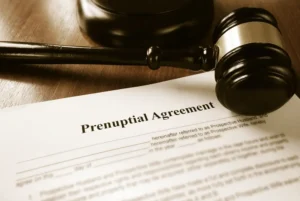Do I Need a Prenup?~2 min read

There seems to be a stigma against prenups. In reality, the process of preparing a prenuptial agreement gives you an opportunity to discuss finances in a transparent way you might not have done before. In addition, you can think of it as an insurance policy. You hope you never have to use it, but if the need arises, you will be glad you have it.
Reasons to Have a Prenup
There are several reasons you may choose to have a prenup:
- It gives you the chance to decide how assets and liabilities will be dived in the event of a divorce at a time when you feel loving toward each other instead of at a time when you may feel angry toward one another.
- If one of you has significantly more assets at the time of your marriage, it is a good idea to establish what will happen to those assets if you should get divorced.
- If either of you have children from a previous marriage, you may want a prenup to be sure your children are protected in the future.
Texas law has standards a prenup agreement must meet in order to be valid.
Texas Prenuptial Agreements
To be valid in Texas, the agreement must meet the following requirements:
- It must be in writing.
- It must have been an agreement you both entered in to voluntarily in anticipation of your marriage.
- You each must have been totally transparent and revealed all the details about your financial situation.
Texas courts also put some restrictions on what cannot be included in a prenup:
- If the prenup includes an agreement about child custody, the court will uphold that only if it determines the agreement is in the best interest of the children.
- As for child support, according to law, “[t]he right of a child to support may not be adversely affected by a premarital agreement.”
- The agreement may not be “unconscionable.” An unconscionable one is when the court finds that one party did not provide a fair and reasonable disclosure of their assets and liabilities and the other party had no reasonable way of otherwise knowing the undisclosed information.
Any premarital agreement may be modified at any time, before or after the marriage, if the old agreement is invalidated and the new one is in writing, signed both parties, and meets all the legal requirements.
Attorney Daniel Abasolo at Springer & Lyle can answer your questions about prenuptial agreements and the process of drafting a legal prenuptial agreement under Texas law. Contact him at 940-387-0404 to schedule a consultation.





